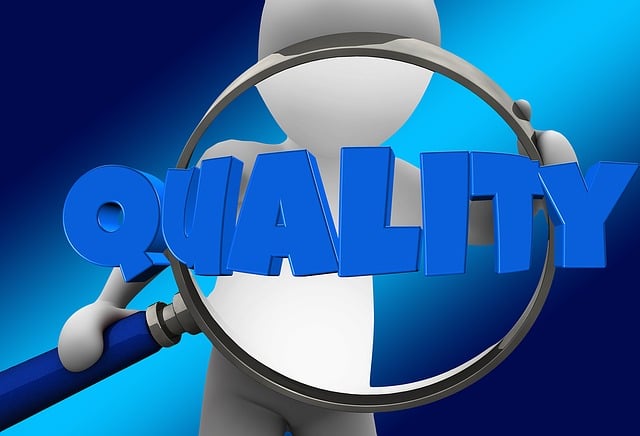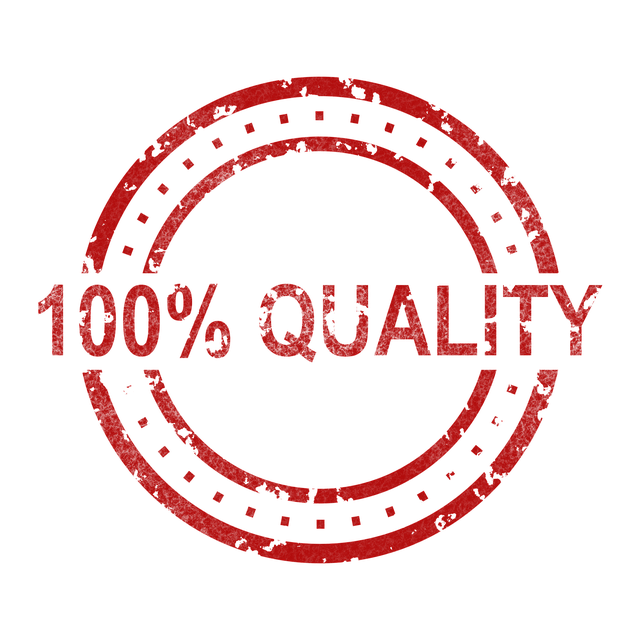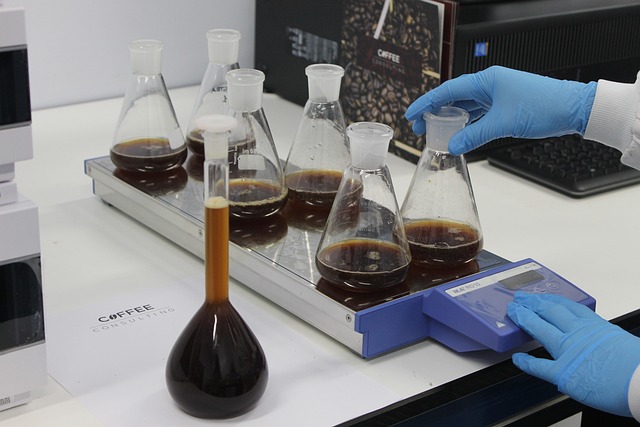Translation services for UK Quality Assurance (QA) Documentation play a pivotal role in ensuring that QA manuals adhere to stringent industry benchmarks like ISO standards and are compliant with local regulations across different languages and cultures. Specialized translation services are essential for accurate translations that maintain the integrity of the original content, navigate cultural nuances, and uphold compliance with global quality and information security management systems. These services employ expert linguists with knowledge of QA-specific terminology and advanced translation technologies like translation memory and glossaries to ensure consistency and clarity in documentation, which is critical for maintaining operational excellence and customer satisfaction in international markets. By leveraging such specialized translation services, organizations can effectively manage their QA documentation, ensuring that all stakeholders, regardless of language, receive information of the same high quality and standards.
navigating the intricacies of UK Quality Assurance (QA) standards is paramount for organisations aiming to maintain a competitive edge and ensure product reliability. This article delves into the critical aspect of compliance within UK QA manuals, highlighting the essential role of translation services in preserving documentation integrity across multilingual environments. We explore the industry’s robust standards, the components that constitute a compliant QA manual, and the common challenges faced during their development and implementation. By examining the ISO standards pertinent to UK QA manuals and showcasing successful case studies, we provide a comprehensive guide to achieving and sustaining compliance in QA documentation within the UK context.
- Understanding the Necessity of Compliance in UK QA Manuals
- Overview of Industry Standards for Quality Assurance in the UK
- The Role of Translation Services in Maintaining QA Documentation Integrity
- Key Elements of UK QA Manuals: What They Should Contain
- Common Challenges in Compliance: Avoiding Pitfalls with Best Practices
- ISO Standards and Their Relevance to UK QA Manuals
- Ensuring Consistency Across Multilingual QA Documentation
- Case Studies: Successful Implementation of Compliant UK QA Manuals with Translation Services
Understanding the Necessity of Compliance in UK QA Manuals

Companies operating within the UK’s regulated sectors understand that adherence to industry standards is paramount for maintaining credibility, ensuring consumer safety, and meeting legal obligations. Quality Assurance (QA) manuals serve as critical documents that outline the processes, procedures, and criteria for assessing product quality and consistency. Compliance with these industry standards is not just a box-ticking exercise; it’s an integral component of a company’s operational framework. For businesses looking to expand their reach or for those already established in international markets, the necessity of having UK QA manuals that align with relevant standards becomes even more pronounced. In this context, translation services for UK Quality Assurance Documentation play a pivotal role. They ensure that the nuances and specificities of these documents are accurately conveyed across different languages, which is crucial when collaborating with international partners or entering new markets where stakeholders may not have English as their first language. This translation process extends beyond mere word-for-word conversion; it involves a deep understanding of both the source and target languages, as well as the technical content within the QA documentation. By doing so, companies can confidently assert that their products meet the required standards, thus facilitating seamless communication and fostering trust among global clients and regulatory bodies. The translation services must be adept at interpreting the complexities of QA terminology to guarantee that the translated content retains its precision and effectiveness in the context of each specific industry. This is not just about legal compliance; it’s about upholding a standard of excellence that is recognized and respected on an international scale.
Overview of Industry Standards for Quality Assurance in the UK

Maintaining compliance with industry standards is a critical aspect of Quality Assurance (QA) within the UK. The UK’s QA framework is governed by a suite of standards that ensure products and services meet quality criteria. Central to this are the ISO 9001 and ISO 17025 standards, which provide guidelines for quality management systems and testing laboratories, respectively. These international benchmarks are widely recognized and help UK companies demonstrate their commitment to quality. For organisations operating in multilingual environments, translation services play a pivotal role in ensuring that QA documentation is accurately conveyed across different languages, maintaining the integrity of the information and adherence to standards. Translation accuracy is paramount, as it directly affects the reliability of the QA processes. Furthermore, UK companies often engage with global markets, necessitating documentation that complies not only with local industry standards but also with international regulations. This dual compliance is essential for smooth operations and for meeting the expectations of international clients and regulatory bodies. In the context of translation services for UK QA documentation, it’s imperative to partner with providers who specialize in both linguistic precision and sector-specific knowledge to ensure that all translated materials reflect the highest standards of quality assurance. This dual expertise ensures that the essence of the original documentation is preserved, and that any cultural nuances are appropriately considered, thereby upholding the integrity of the UK’s stringent QA standards in a global context.
The Role of Translation Services in Maintaining QA Documentation Integrity

In the context of maintaining the integrity of UK Quality Assurance (QA) documentation, translation services play a pivotal role. As companies expand their operations internationally, QA documentation must be accurately translated to meet regulatory requirements and communicate effectively with global teams. The translation of QA manuals from English to other languages, or vice versa, requires not only linguistic precision but also an in-depth understanding of the specialized terminology inherent to the quality assurance industry. High-quality translation services for UK QA documentation ensure that the content remains clear, consistent, and compliant with industry standards, regardless of the target language. This is crucial for maintaining the accuracy and effectiveness of QA processes across different regions, thereby upholding product safety and performance.
Moreover, the selection of competent translation services for UK Quality Assurance Documentation is essential to guarantee that the translated materials do not just convey the original meaning but also adhere to local regulatory requirements. This is particularly important given the stringent standards set forth by bodies such as the Medicines and Healthcare products Regulatory Agency (MHRA) and the European Medicines Agency (EMA). By leveraging expert translators who are well-versed in both language nuances and industry-specific jargon, companies can ensure that their QA documentation is not only translated but also localized appropriately, thus safeguarding compliance and operational excellence on a global scale.
Key Elements of UK QA Manuals: What They Should Contain

UK Quality Assurance (QA) manuals are pivotal in ensuring that products and services adhere to the highest standards of quality, compliance, and customer satisfaction. These manuals should encapsulate the systematic approach to QA within an organisation by outlining methodologies, processes, and documentation requirements that align with both internal policies and external industry standards. A robust UK QA manual includes a structured framework for document control, procedures, work instructions, quality objectives, and responsibilities of personnel involved in quality-related tasks. It should also delineate the methods for monitoring, measuring, and analysing processes to ascertain conformance with set criteria.
For organisations operating within or exporting to international markets, the necessity for accurate translation services for UK Quality Assurance Documentation cannot be overstated. The manuals must be effectively translated into various languages while maintaining the integrity of the original content to ensure that quality standards are understood and adhered to globally. Translation services should not only be linguistically precise but also contextually appropriate, capturing the nuances of QA terminology and its application across different cultural settings. This is crucial for maintaining consistency in quality practices and for ensuring legal compliance in countries with regulations that require documentation in the local language.
Common Challenges in Compliance: Avoiding Pitfalls with Best Practices

Navigating the intricacies of UK Quality Assurance (QA) standards requires a diligent approach and an understanding of the ever-evolving regulatory landscape. One common challenge organizations face is ensuring that their QA manuals are not only comprehensive but also compliant with the latest industry standards. This necessitates a continuous review process to align with current regulations, which can be daunting for teams responsible for QA documentation. Translation services for UK QA Documentation play a pivotal role in this regard, as they must accurately convey complex technical information in a manner that is both clear and precise across different languages. To avoid compliance pitfalls, it is imperative to adopt best practices such as regular updates, clear version control, and meticulous documentation of processes and procedures. Additionally, leveraging specialized translation services ensures that the nuances of QA terminology are preserved in all languages, thereby maintaining the integrity of the documentation. By staying vigilant and proactive, organizations can mitigate risks associated with non-compliance and uphold their commitment to quality and safety within their industry. Implementing robust procedures for managing translations and keeping abreast of regulatory changes are key actions that contribute to a compliant and effective QA manual.
ISO Standards and Their Relevance to UK QA Manuals

In the context of maintaining high standards within the UK’s quality assurance sector, the adherence to ISO standards is paramount. The International Organization for Standardization (ISO) sets forth a series of guidelines and best practices that are widely accepted across industries worldwide. These standards, such as ISO 9001 for quality management systems and ISO/IEC 27001 for information security management, serve as benchmarks for organizations seeking to prove their commitment to quality and reliability. For UK-based Quality Assurance (QA) teams, translating these comprehensive guidelines into tailored QA manuals is essential. These manuals not only provide a structured approach to maintaining quality standards but also ensure that all processes are transparent and can be audited effectively. Translation services for UK QA Documentation play a crucial role in this process, as they facilitate the accurate transfer of information from standardized frameworks into language and terminology that is both understandable and actionable for local teams. This translation process ensures that UK QA manuals reflect the latest ISO standards, thereby maintaining compliance and enhancing the reputation of UK businesses on a global scale. Furthermore, utilizing specialized translation services not only bridges language gaps but also addresses cultural nuances that could otherwise lead to misunderstandings or misinterpretations of quality requirements. As such, these services are indispensable for organizations aiming to align their QA practices with the stringent demands of industry standards, thereby safeguarding product integrity and customer satisfaction.
Ensuring Consistency Across Multilingual QA Documentation

When managing QA documentation in a multilingual environment, maintaining consistency is paramount to ensure that quality standards are upheld across all language versions. UK Quality Assurance (QA) documentation, in particular, must adhere to stringent industry standards and be accurately translated to be effective. Translation services for UK QA Documentation play a crucial role in this process. These specialized translation services not only translate the content but also ensure that the context and nuances specific to the QA field are preserved. This is achieved through a combination of expert linguists who are knowledgeable in quality assurance terminology and advanced translation technology that facilitates consistency checks. By implementing robust workflows and leveraging translation memory and glossaries tailored to QA terminology, these services can guarantee that the translated documentation reflects the original content’s intent and accuracy. This uniformity is essential for organizations operating in international markets, as it guarantees that all stakeholders, regardless of language, receive the same quality information, which is critical for maintaining product integrity and regulatory compliance.
Case Studies: Successful Implementation of Compliant UK QA Manuals with Translation Services

In the realm of UK Quality Assurance, maintaining compliance with industry standards is not just a box-ticking exercise but a critical component of operational excellence. A pivotal aspect of this compliance involves the effective communication of QA processes and procedures, which often necessitates the translation of such documentation into languages other than English. For instance, a leading pharmaceutical company in the UK faced the challenge of implementing its stringent QA manual across its international subsidiaries. The solution lay in leveraging specialized translation services for UK Quality Assurance Documentation. These services ensured that the translated manuals adhered to both the linguistic nuances and the regulatory requirements of each target market, thereby upholding the integrity of the original content. This meticulous approach not only facilitated a successful global rollout but also reinforced the company’s commitment to quality across all operations. Another case study highlights a multinational medical devices firm that successfully navigated the complexities of cross-border compliance by utilizing expert translation services. The QA manuals, translated into multiple languages, were pivotal in maintaining consistency and compliance with ISO standards, ensuring that products met the necessary quality criteria regardless of their market destination. These successful implementations underscore the importance of employing specialized translation services for UK Quality Assurance Documentation to bridge language barriers without compromising on the stringent requirements set forth by industry standards.
In concluding, it is clear that maintaining compliance with industry standards in UK QA manuals is a multifaceted task that necessitates careful attention to detail and a robust understanding of the relevant regulations. The overview of UK quality assurance standards highlights the importance of adherence for companies operating within this realm. Translation services play a pivotal role in ensuring that QA documentation remains accurate and consistent, especially for organisations with multilingual teams or international reach. By integrating these services into their processes, businesses can navigate the complexities of regulatory compliance effectively. The key elements outlined in this article provide a comprehensive framework for what UK QA manuals should encompass, ensuring they are both informative and aligned with ISO standards. Embracing best practices and leveraging translation expertise not only helps avoid common compliance pitfalls but also fosters a culture of excellence and reliability. The case studies presented serve as testaments to the successful implementation of compliant UK QA manuals, demonstrating tangible benefits when translation services are utilized in this critical domain. Ultimately, the commitment to compliance is not just about meeting standards—it’s about setting the foundation for quality excellence and operational integrity in the UK QA landscape.
